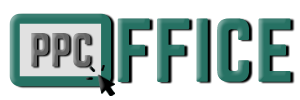
Introduction To CPAs and What Should You Expect?
A lot many people are unaware of the financial knowledge, which is required to run a business. It has been recorded that 65{5f54c4a9d690265968347e1b89c42754660c9da2dea1a929ed833fe6e5bf46c8} of all businesses fail because of financial mismanagement on behalf of the entrepreneurs. One of the reasons is that they do not teach all this in the schools.
Financial mismanagement can be extremely disastrous when you run a business. This is why, when it comes to financial management and advice, you must always trust the experts of the field. Pacific Accounting Group is the most trustworthy California CPA. Their team of expert CPAs is one of the best experts in the market.
Oftentimes, there is a question in the minds of people how is a CPA different from the average chartered accountant. Well, speaking, CPA is a more evolved and learned version of an ordinary CA (no offence to CA). CPA stands for the certified public accountant and these experts are licensed to execute audits and reviews.
Before that, they undergo rigorous training and examination. They also possess a broader and deeper knowledge of the tax codes. These experts are in a much better position to counsel you about the tax codes and tax planning. In short, the CPAs are authorized to perform those functions that the CA’s cant.
Checklist for Meeting with Your CPA
Each year, you will be required to meet your CPA and discuss the modalities, present the paperwork and locate the relevant documents. Here is a list of the documents that you would be required to show to the CPA:
1. Income records
2. Invoices
3. Bank statements
4. Brokerage statements
5. Investment account statements
6. Schedule K-1
Invoices, bank statements, and investment accounts –
Being a small business, it is your responsibility to keep a track of all the receipts and invoices. All the records of the incomes have to be provided at the time of audit. The 1099-INT form shows your savings and interest. This is also required at the time of audit.
Schedule K-1 –
Those businesses that are classified as partnerships or corporations are required to report for any income or loss in the mode of schedule K-1 form. This form will have all the details of the shares along with the income within the partnership or a corporation.
Office expense –
Office expenses vary from one office to another. These comprise the supplies, travel and other seemingly trivial expenses.
Mileage expenses –
Those who use the car for conveying to and fro the business can also claim a deduction for the miles driven for business purposes. this is why it is advised to keep a record of all the receipts of toll while driving for professional reasons.
Payroll expenses –
If you hire employees, then you must also provide the paperwork of their salary and wages.
Conclusion
The CPAs are the accounting ninjas. You should take advice from them before making any financial decision having a bearing on your business to evade the possibility of running out of money.



